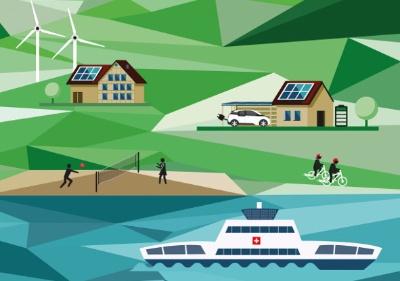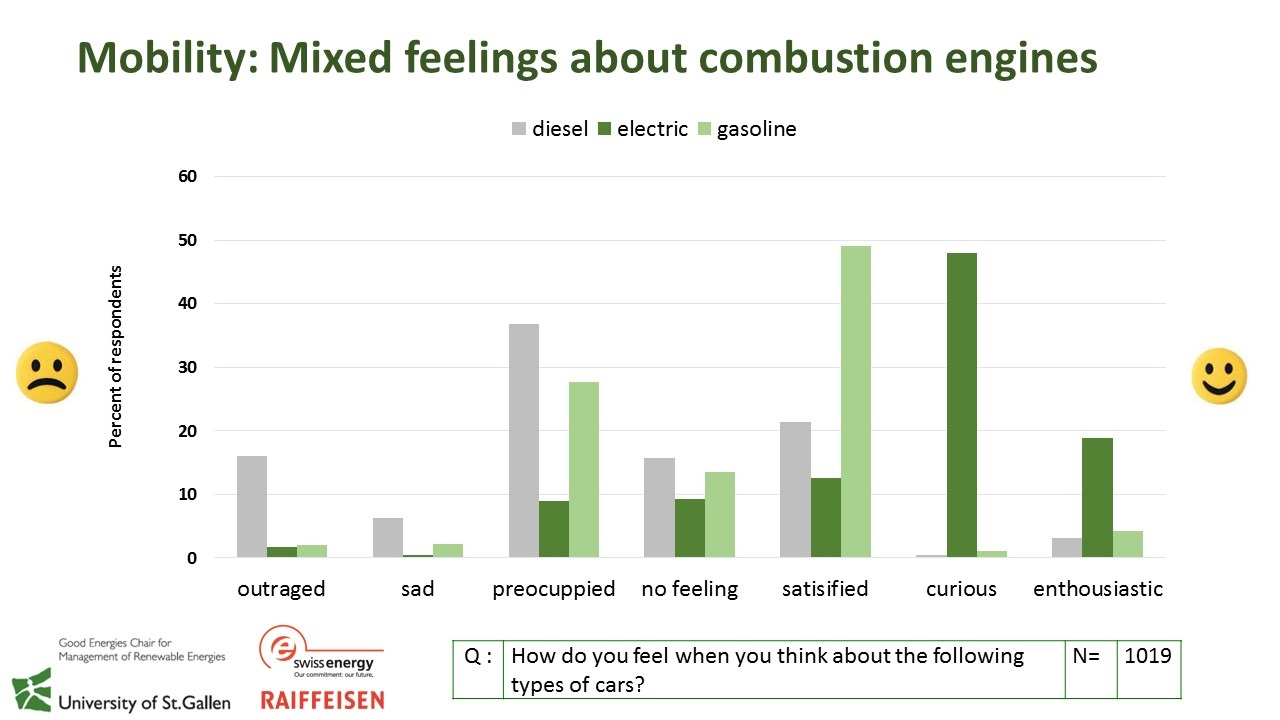8th Consumer Barometer of Renewable Energy
- 7/6/18 9:06 AM
- Kirsten Oswald
Consumer preferences for mobility show mixed feelings about conventional cars

How does the Swiss public perceive renewable energy? How do they use these technologies in their homes? What do they think about the role of politics and business in the energy transition? These and many more questions are gauged in the annual Consumer Barometer of Renewable Energy, which is based on a comprehensive survey with more than 1,000 participants. Since 2011, the Chair for Management of Renewable Energies, at the University of St. Gallen, and Raiffeisen Switzerland have been collaborating on this project. The SwissEnergy program launched by the Federal Council in 2001 has joined the project for the first time this year. The goal of this effort is to design financing solutions for renewable energies that fit consumer preferences and give advice to policy makers. The Consumer Barometer analyzes survey responses concerning Swiss energy and climate policy, mobility, buildings, green investment and social acceptance of wind energy.
Concerning mobility survey results show that Swiss consumers are sensitive towards mobility-induced air pollution. The majority of respondents (52%) believe that improved air quality in urban areas would be the most important positive effect of reduced traffic flow, while noise reduction (22%) and more safety for children (10%) follow. In this context, there is a high acceptance of a possible ban on diesel cars: 73% for women and 63% for men. Moreover, many consumers associate electric cars with positive feelings such as curiosity and enthusiasm, while diesel cars provoke responses that are more negative (see figure below). However, conventional gasoline cars lie somewhere in between, as consumers are more satisfied (54%) than preoccupied (32%) with this technology. This tendency may slow the diffusion of electric vehicles, despite the positive disposition towards e-mobility. It is therefore not surprising that the majority of participants would still choose to buy a conventional gasoline car (44%), followed by hybrid (22%) and electric (20%). According to the responses, limited charging stations, low driving range and the price of electric cars are the major reasons against purchasing an electric vehicle.

The Consumer Barometer also took a close look at air travel, as Switzerland is one of the top consumers of air miles per capita. Interestingly, 57% of respondents think that flying is too cheap. If this were to be changed and it became mandatory to pay a CO2 compensation of CHF 50 for a leisure flight within Europe, 50% would still opt to fly. Thus, at least for Switzerland, the trend of increasing air travel may not be reversed so easily.
To find out more, please download the full Consumer Barometer or watch the Youtube-video.
Prof. Rolf Wüstenhagen, who heads the Chair for Management of Renewable Energies at University of St. Gallen, and Julia Cousse authored the report. Prof. Wüstenhagen is member of SCCER Mobility and contributes to the research activities of Capacity Area B2.
!!! This document is stored in the ETH Web archive and is no longer maintained !!!